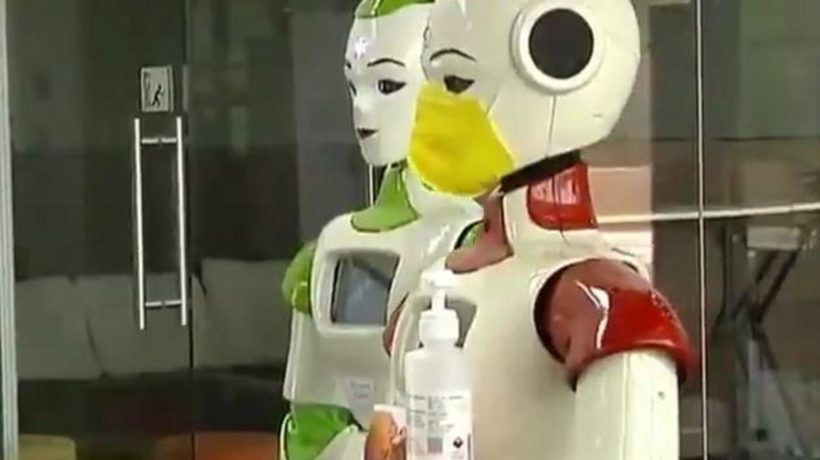COVID-19 has brought to us a crisis that is sort of a catalyst. All of a sudden companies large and small are exploring how they can use robots to increase social distancing and reduce the number of staff that have to physically come to work. Robots are also being used to perform roles workers cannot do at home.
Some retailers are considering using robots to scrub its floors. In other parts of the world robots have been used to measure temperatures and distribute hand sanitisers. With health experts warning some social distancing measures may need to be in place through 2021, robots as workers may be in greater demand.
Some hospitals around the world are using robots to perform tasks like securely delivering medications, transporting linens and meals, and disposing of trash and biohazardous waste. Major retailers are accelerating the installation of kiosk ordering systems that can easily be layered on.
Major corporations are realising faster that adding automation to operations will not only make them more resilient to disruption, but can also cut costs. Although jobs are not likely to be replaced by automation overnight when the economy comes back online it is only reasonable to expect a major shift to employment. The replacement of human beings by robots at work is now a matter of when. The reaction towards this unavoidable reality however can no longer be just a fight about jobs. Workers should now consider ownership of robots.
The main thing to fear today is not joblessness, but a future in which the earnings of workers are stagnant or falling (as robots take a greater share of high-productivity jobs), and the share of income going to the owners of the machines increases.
The challenge posed by automation is not just how to provide new jobs as others are taken over by machines, but also how to democratize an economy in which power is increasingly concentrated into the hands of a small group of private owners.
What should concern society today is the power disparity between those who own the highly productive capital of the automation age and those who do not.
The concentration of ownership carries with it the monopolization of economic control. The ownership of robots will become the prime determinant of how they affect most workers. Understanding this should be the prime focus of protecting workers today. Workers should now consider owning shares of robotic firms, hold stock options, or be paid in part from the profits. Workers should have a substantial ownership stake in the robot machines that will compete with them for their jobs and be the vehicle for capital’s share of production. Organisations that fight for worker rights should shift their focus towards a worker robotic ownership legal right. Common ownership of robots should become enshrined either in law or in cultural values. The ownership of robots should not be left to technology giants. Laws that govern how society will adopt robots at work should be crafted now to safeguard workers from the unavoidable.
Market forces should not be the only determinant of the future of work. Law makers should be proactive and design laws that will safeguard worker rights in a world that will be driven mainly by robots. We are headed towards a future where an income will increasingly come from ownership of robots or other forms of capital and the stream of income they produce, rather than from human labor. COVID-19 crisis should not be wasted, there’s now a need to focus on what really matters, the ownership of robots.







